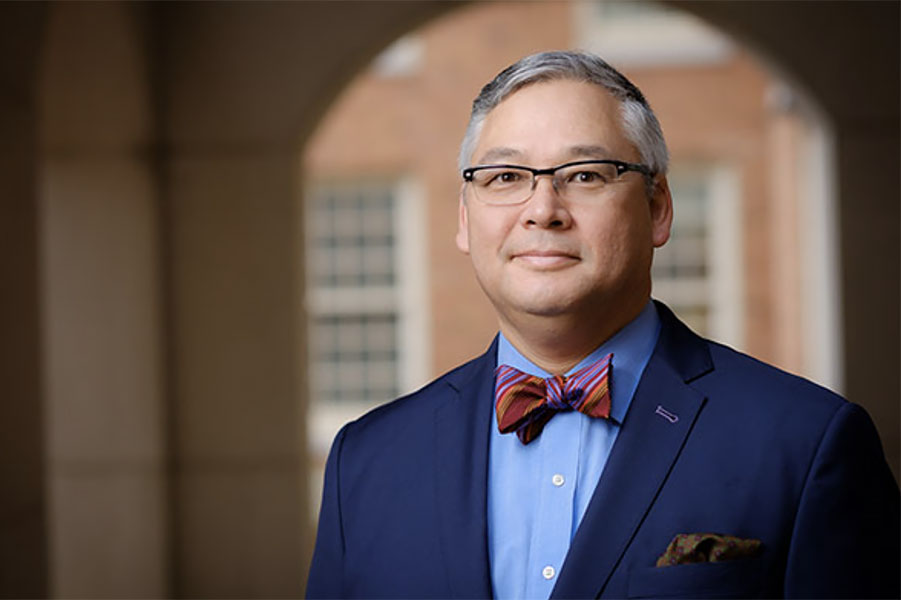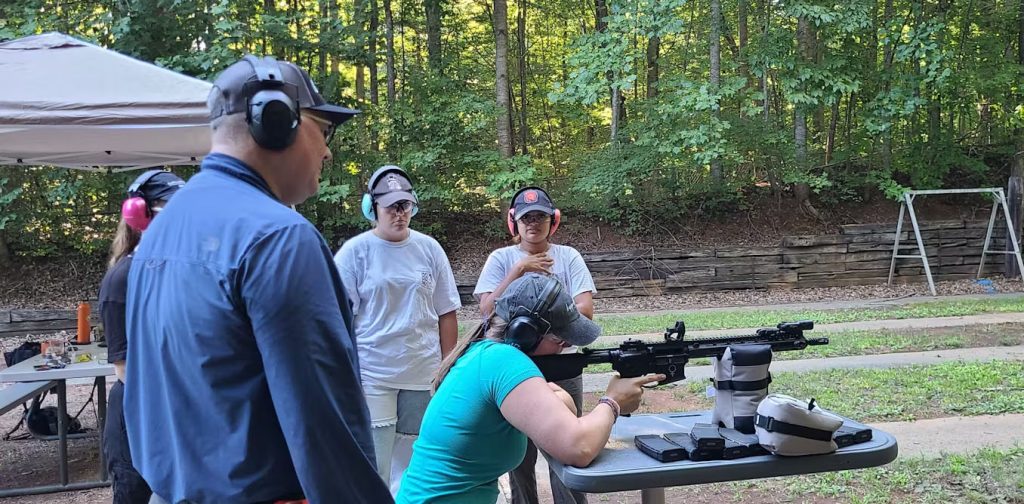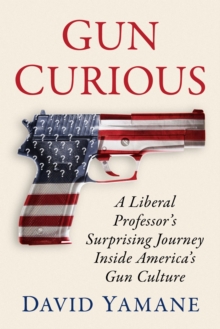
David Yamane is a sociology professor at Wake Forest University in Winston-Salem, North Carolina and has become an internationally recognized authority on America’s gun culture. He’s also become a gun guy and takes students in his Sociology of Guns class to the range every year to shoot (GASP!) an AR-15 rifle.
He writes at guncurious.com as well as gunculture2point0.com and his videos can be seen at his YouTube channel, “Light Over Heat with Professor David Yamane,”. His new book, Gun Curious: A Liberal Professor’s Surprising Journey Inside America’s Gun Culture, will be published in June. SNW asked the Professor a little about himself and his new book
SNW: Can you tell us a bit about yourself and how you came to write this book?
DY: For the first 20 years of my career as a sociologist, I studied religion. I had a good bit of success in that area, but as I struggled to finish my last book on that topic, I realized I wanted to study anything but religion for my next project. I was a little burned out and, being in my early forties, maybe having a bit of an academic midlife crisis.
Around the time I was trying to figure out what to study next, I began to notice guns all around me in North Carolina. Street signs for concealed carry classes, billboards for gun stores and ranges, people I played tennis with who owned firearms, and my future wife, who used guns professionally as a member of the US Coast Guard. This was quite new and surprising to me having lived my entire life completely outside of gun culture. I knew what my next project would be.
Once I decided to switch from religion to guns, my initial plan was to study the narrow question of why people get concealed carry permits. As I got into my research, I realized that concealed carry was just part of a broader shift in American gun culture toward what I call, borrowing from the gun journalist Michael Bane, Gun Culture 2.0. This is the most recent evolution of America’s historic gun culture, one centered on armed self-defense.

After several years of research, I began writing a book about American gun culture for other scholars studying the topic. But I came to another important fork in my professional road. I realized I didn’t need or want to write another academic monograph that would be read by a few hundred people. I decided to tell the story of the American gun culture by placing my own experience of becoming a gun owner at the center of the story. Gun Curious is the result.
SNW: What does “gun curious” in the book’s title mean?
DY: I chose the title ‘gun curious’ for a couple of reasons.
First and foremost, my curiosity-driven search for understanding is how my journey into the world of guns began over a decade ago. I was gun curious, both personally and professionally.
Personally, I’m a “card-carrying liberal” Asian American sociology professor from the San Francisco Bay Area who, for the first four decades of my life, never saw, touched, or fired a real gun. But in late 2010, I found myself wanting to know about firearms. In 2011, as a 42-year-old, I fired a gun for the first time. And my curiosity about them grew as a result.

Professionally, curiosity is sociology’s driving force. As sociologist Peter Berger observed long ago, “the first wisdom of sociology is this: things aren’t what they seem.” The desire to discover new and unexpected aspects of the social world is at the heart of my research.
My curiosity about guns, gun owners, and gun culture now includes 13 years of personal experience as a gun owner and 12 years of sociological observation. The story I tell in Gun Curious weaves these two strands together to take readers on a journey inside gun culture in a way I believe no book yet has.
Second, I hope the title invites all those curious about guns – those whose minds and hearts are open to learning something new – to join me on this journey. This includes gun enthusiasts, gun skeptics, and those who are interested but uncommitted. Anybody who is gun curious should find something of interest in the book.
SNW: What’s one surprising takeaway from your exploration of America’s gun culture?
DY: Let me give you two surprising things I learned: gun owners are people, too, and there is a lot of diversity among gun owners.
First, because outside attention to guns so often focuses on negative outcomes, it can be hard for some people to appreciate that gun owners are people, too. Given the huge number of guns and gun owners in America – perhaps as many as 100 million adults owning at least 400 million guns – it’s actually quite rare for guns or gun owners to harm themselves or others, intentionally or accidentally.
That isn’t to diminish the significance of gun violence, suicide, or accidental death and injury. These negative outcomes are significant and we need to do everything we can to reduce them as much as possible. But there is a big, untold part of the story that falls under my saying, Guns are normal and normal people use guns.
Second, I realized that gun owners are not all politically conservative white Christian men from the rural South. Not that there is anything wrong with the characters from Duck Dynasty, but this demographic only represents part of U.S. gun culture. Gun owners are diverse in where we come from and where we live, our political orientations, and our racial, gender, and sexual identities.
Of course, this diversity also includes there being good and bad gun owners, responsible and irresponsible gun owners. And it absolutely includes racist and Christian nationalist and insurrectionist gun owners. But most gun owners don’t fit those molds. As Michael Bane once told me, there are assholes even in your grandmother’s knitting group. After all, gun owners are people, too.
SNW: What do you want the takeaway from your book to be?
DY: At a time when it feels like cultural and political divisions over firearms are tearing our country apart, I want more than anything for readers to see what an even-handed, non-inflammatory discussion of American gun culture can look like. As my motto suggests, I want to promote light over heat, insight over animosity, in understanding the complex reality of guns.
Central to this is simply telling my truth and not seeking to convince people of some ideological, political, or policy position on firearms. I tell the story of American gun culture from my own perspective as someone who became a new gun owner later in life – the good, the bad, and the ugly.
I also sincerely hope that everyone who reads the book learns something new about some aspects of guns, gun ownership, or gun culture. This includes even people who have been gun owners their entire lives and feel like they know everything there is to know about the topic. I think we’ve all met that guy before.
Finally, I hope people take some pleasure in reading the book. Maybe there are some stories in Gun Curious that will move readers, make them think, and maybe even make them smile.

3 Responses
Of course there is a gun class available with credits towards graduation. That can only be found in a Bible Belt state.
And not in a state run by atheists.
It is said (not inaccurately) that a conservative is a liberal that was rudely-surprised by a brutal mugging.
That’s what motivated me to carry. The attempted mugging was by large dog being sicced on me by its redneck owner on a late night rural bike ride, for the hick’s amusement. I had several revelations, the first being, I never realized I could bike that fast. The second was, carry was legal where I was, and I didn’t have to be a passive target of his twisted amusement. If a dog was to attack me, Fido was going to be the one on the losing end of that contest, not me…
I became I serious gun owner in Obama’s first term. Communists in office tend to encourage certain people to gun up, as it were.